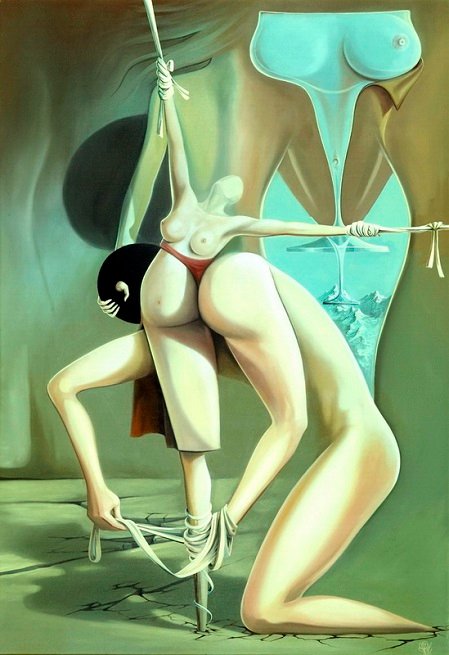Here is the tragic answer Oedipus gives with his unconscious life to the mystery of the Sphinx. And yet his great, inexhaustible sin is that he mixes in one, confuses the three separate phases of human life (in the same way the unconscious is not age, it does not know the time, and so Freud says it is like fate and never we can escape) that should be followed in the family chronicle. This is the reason for the universal prohibition of incest - you can not enter where you came from - the mother's womb and everything she likes so that the natural course of the generations will never be interrupted.
It should be noted that there is no special book or article by Freud dedicated to the Oedipus complex. But he is present everywhere, and this is the focal point around which Freud's theory is built. The Oedipus complex is the tragedy of revealing the unconscious, pretended as fate. This is the drama of the guilty restraint of the unconscious motions of every human being of the oppressed in the unconscious motions. In art the oedipal situation has been described many times. The great classic description is Hamlet of Shakespeare. In the last century, the great modern description is undoubtedly the "Karatazov Brothers of Dostoevsky", where each of the three Karamazov brothers really wants to kill the father. Freud writes to his friend Flyse: "I have found in myself, as elsewhere, in all people, feelings of love for my mother and jealousy toward my father. I think these feelings are inherent to all young children. If so, then we understand why, despite all rational objections that oppose the hypothesis of insurmountable fatality (the unconscious foretold as fate), the tragedy of Oedipus king Oedipus has such a powerful effect on us. The Greek tragedy reveals an impulse that all people recognize because they have already experienced it. Any viewer, one day, unconscious, embryo, imaginary, or sleeping, was Oedipus and was terrified of the possibility of his dream being carried into reality or on stage. " In the Interpretation of Dreams, Freud returns to Sophocles' tragedy because he finds that it confirms the dreams of our childhood, reminding us of an ejected and buried past: "It is possible that we all have experienced the first sexual impulse against our mother, and our father our first hate; dreams testify to us.
An Oedipus who kills his father and marries his mother only fulfills the desires of our childhood. But happier than him, we could then tear our mother's sexual desires and forget our jealousy to our father. We are terrified by the sight of the one who realizes the dream of our childhood and our horror has all the power of repression that then exercised over these desires. The tragedy revealing the guilt of Oedipus obliges us to look at ourselves and to recognize in ourselves these poets, which, although oppressed, still exist. In this, perhaps the most important letter of Freud, having discovered the story of his own desire, he also finds it in the tragedy, the myth that is the expression of the same desire, but impersonal, collective. This approach will allow the crystallization of a sophisticated psychoanalytic theory to crystallize, which until then, as we have seen, is still in search. The mythical model appears as a guarantee of the universality of Freud's hypothesis and as a guarantee of its universality. The tragedy impresses so much because it is the exact representation of a passion (the tradition, Aristotle in Poetica speaks of imitation, of memesis). The tragedy is effective with its ability to awaken sympathy. To participate intensely in a passion represented means to expend mental energies that correspond to this passion and therefore to be eliminated - this Aristotle calls catharsis.

You have recieved a free upvote from minnowpond, Send 0.1 -> 10 SBD with your post url as the memo to recieve an upvote from up to 100 accounts!
Wow! Your poetry is So Awesome.
I really love it, good job 👍
thank u